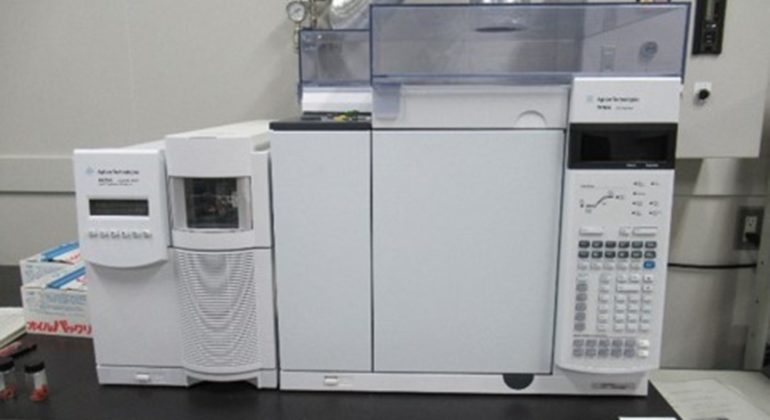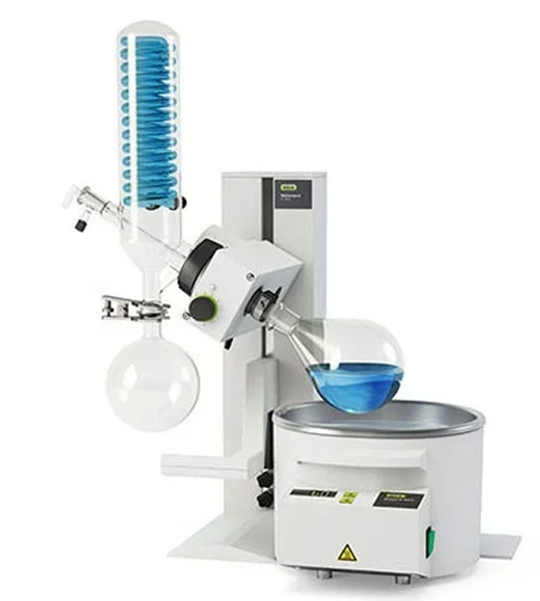Thermal Kinetics Test Center
Key reasons for using lab studies for process/product development
- Validation – verify your technology
- Scalability – gather design information necessary for scale-up
- Optimization – confirm optimal operating condition
- Market Development – produce realistic product samples for customer testing
Our knowledgeable and customer-oriented engineers have over 120 years of combined experience which means you will be provided with the best solution possible.
Industries Served
Our lab results are used to design full-scale separation equipment serving the following industries:
- Biofuels
- Pharmaceutical
- Chemical
- Petrochemical
- Food
- Others

Analytical Capabilities
Our on-site analytical services provide quick results to effectively and efficiently manage process variables (e.g., heat input, separation efficiency, reflux ratio, liquid/vapor ratio, etc.) to develop designs that meet our customers’ separation needs. Our analytical capabilities include:
- GC – Flame Ionization Detector (FID)
- GC – Mass Spec (MS)
- Karl Fischer
- Moisture balance (Loss in weight drying)
- Microscope
- pH
- Refractometer
- Viscometer

Thermal Kinetics Distillation Lab Testing Services
Combined with our simulation tools, distillation laboratory testing ensures a successful separation based on accurately determining process parameters (e.g., HETP, number of stages, reflux ratio, heat input, L/V, etc.). Lab test results help establish theoretical stages (affecting column height) vs. reflux ratio/boil-up (influencing column diameter and heat exchanger designs). Distillation lab testing reduces or eliminates process risks.
Distillation lab tests are recommended for:
- High product purities (ppm concentration of VOCs in wastewater)
- Thermally sensitive compounds
- Mixtures containing impurities and/or solids
- Foaming systems
- Azeotropic separations – heterogeneous and homogeneous
Distillation Equipment
Our distillation lab test equipment can be configured to meet your separation requirements.
- Total reflux – establishes minimum number of theoretical stages
- Continuous – includes both rectifying and stripping sections
- Batch
- Stripping
- Vacuum distillation
- Packing
- Trays
- Multiple feed locations
- Preheated feed
Distillation Lab Test Design Parameters
Distillation process parameters can be adjusted to meet process separation requirements. The following parameters can be varied during the distillation lab test:
- Feed rate
- Reflux ratio
- Operating pressure – Vacuum (1 mmHg abs) to atmospheric pressure
- Heat input
- Liquid / vapor traffic
- Feed temperature

Lorem ipsum dolor sit amet, consectetur adipiscing elit. Ut elit tellus, luctus nec ullamcorper mattis, pulvinar dapibus leo.
Thermal Kinetics Evaporation Lab Services
Evaporation laboratory testing allows us to evaluate your product at actual operating conditions. The testing concentrates the product all while observing characteristics such as fouling, foaming, solids formation, and other properties.
Evaporation lab tests determine key physical properties such as:

- Density
- Viscosity
- Boiling point and boiling point elevation
- Solubility
- pH
- Solvent volatilization
- Color pick-up
- Residence time sensitivity
- Concentration limits
Evaporation Lab Test Configurations
Our evaporation lab test equipment can be configured into different proprietary glassware configurations.
- Falling Film (FF)
- Forced Circulation (FC)
- Rising Falling Film (RFF)
- Thermosiphon Rising Film
Testing provides guidance on sizing and recommended type and determines if the application can be done in a single pass or recirculating configuration.
Evaporation Test Design Parameters
Evaporation process parameters can be adjusted to meet process requirements:
- Operating pressure – Vacuum (1 mmHg abs) to atmospheric pressure
- Heat input
- Temperature control
- Condenser control
- Stage concentration (simulate multiple effect or stages)
Thermal Kinetics Crystallization Lab Services
Crystallization laboratory testing allows us to evaluate your product and help determine the crystallizer type to produce quality crystals. The operating conditions and crystallizer type affects the crystal appearance, shape, and crystal size distribution. Our laboratory crystallizer allows us to run different configurations to best match customer requirements.
Crystallizer lab tests determine key physical properties such as:
- Solubility curve
- Crystal shape
- Crystal size distribution
- Bulk density
- Hardness/Friability
- Filterability
Crystallization Lab Test Configurations
Our crystallization lab test equipment can be configured into different crystallizer types to meet your crystallization requirements. Additionally, the crystallizer can operate as an evaporative, adiabatic evaporative cooling or cooling crystallizer.
- Forced Circulation (FC)
- Draft Tube Baffle (DTB)
- Surface Cooled Baffle (SCB)
- Classified Suspension Crystallizer
Crystallization Lab Test Configurations
Our crystallization lab test equipment can be configured into different crystallizer types to meet your crystallization requirements. Additionally, the crystallizer can operate as an evaporative, adiabatic evaporative cooling or cooling crystallizer.
- Forced Circulation (FC)
- Draft Tube Baffle (DTB)
- Surface Cooled Baffle (SCB)
- Classified Suspension Crystallizer
